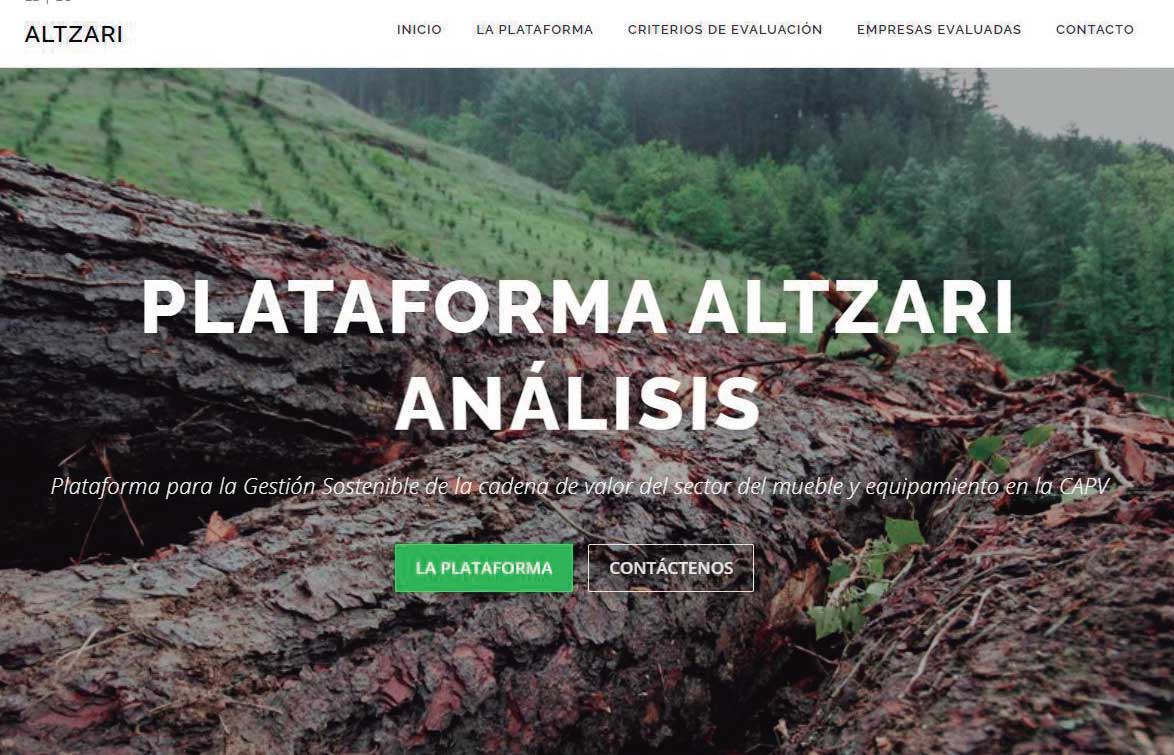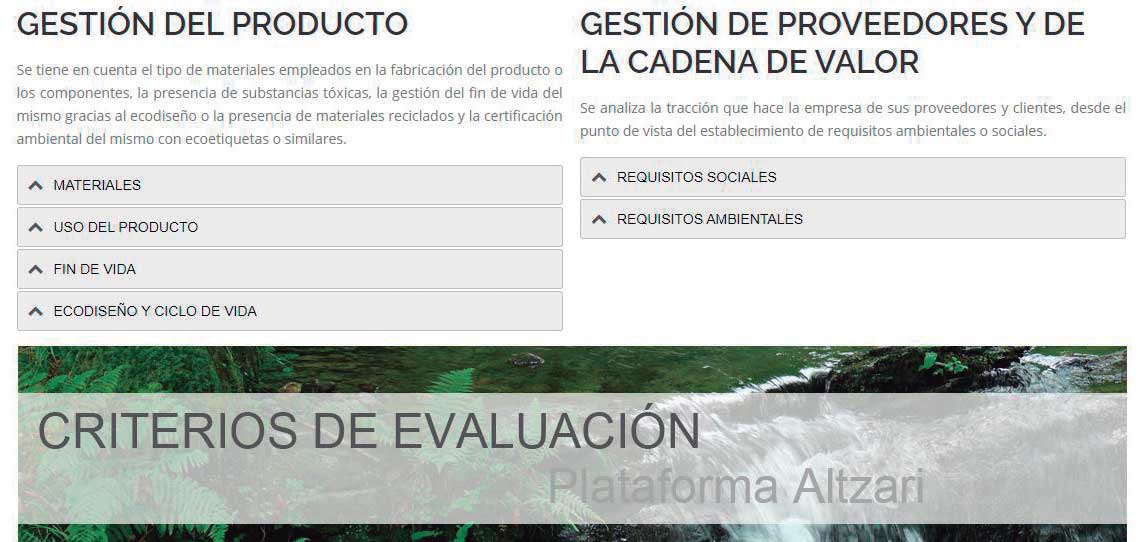ALTZARI
FURNITURE VALUE CHAIN ENVIRONMENTAL ASSESSMENT AND MANAGEMENT
THE INDUSTRIAL RESPONSE TO ENVIRONMENTAL AND SOCIAL ISSUES GAVE RISE TO CORPORATE SOCIAL RESPONSIBILITY (CSR) actions as a voluntary exercise of transparency and commitment at a corporate level. Increasing demand from a demanding society and growing global competition have made it necessary to adopt a more proactive and committed attitude, since nowadays, ignoring sustainability parameters potentially means being excluded from the market. For this reason, automated tools that go beyond global corporate indicators but take into account environmental and social parameters and interact with non-corporate actors, are on the increase. Some examples include ECOVADIS, ACHILLES or BLUESIGN.
HABIC, the Habitat, Wood, Office and Contract Cluster Association of the Basque Country, have brought together the main companies in the sector and leads ALTZARI. In 2016, HABIC identified the need for businesses to demonstrate their social and environmental commitment to their companies, clients and stakeholders. The following firms have collaborated in ALTZARI: PLÁSTICOS ALAI, BURDINOLA, EUN SISTEMAS, MADERAS URKIA, ICAZA, ELKOR, IRURENA and the consultancies IK INGENIERIA and ZICLA.

DRIVING FACTOR


 OBJECTIVES
OBJECTIVES
- Promote environmental performance and ecoinnovation in the value chain of the Basque furniture and equipment sector through the practical implementation of a sustainability assessment model in a set of companies in the Basque industrial ecosystem.
- Enhance and channel green procurement, improving transparency towards actors and stakeholders, and environmental and CSR practices of companies.
- Integrate a life-cycle approach and improve environmental practices of companies along the value chain.
 RESULTS
RESULTS
- Characterisation of the sector’s value chain in the Basque Country.
- Development of a value chain assessment method, with demonstration experiences for the implementation of the developed eco-innovation trailblazing method.
- Creating and launching an environmental and social assessment method for the sector’s value chain through the ALTZARI platform, which provides clear and transparent information on the environmental and social situation of a company and its product. The platform is useful for Procurement, CSR, EH&S and Sustainability departments of companies who wish to monitor the environmental and social performance of their supply chain; and for suppliers who need to address environmental and social assessment requests.
 CONCLUSIONS
CONCLUSIONS
- The ALTZARI platform is the fi rst one of its kind to be developed exclusively for the furniture sector. It is also a pioneering experience in value chain trailblazing within the Basque clusters themselves: the methodology developed in ALTZARI will obviously focus on the specifi cations of the furniture sector trailblazing chain, but the application of the concept to other sectors is also possible.
ENVIRONMENTAL
TECHNICAL
ECONOMIC
COMMERCIAL
ON THE MARKET


